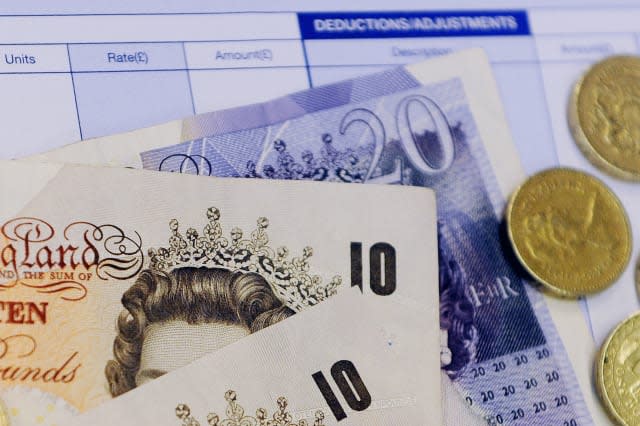Low pay scams of 'cheapskate' firms

Some firms have developed scams to avoid paying the national minimum wage, including charging for uniforms, clocking off cafe workers when there are no customers, and mis-using interns, according to a new report.
A study by the TUC found that apprentices were most likely to be underpaid, with suggestions that 120,000 were not receiving the proper rate.
Despite improvements to enforcing the statutory rate, new ways of cheating have emerged, said the union organisation.
The research found that a minority of employers were under-recording workers' hours, not paying for travel between work sites, or "vanishing" to avoid paying fines, only to reappear under a different name.
The TUC called for enforcement of the minimum wage to be improved to combat rogue employers.
TUC general secretary Frances O'Grady said: "Failing to pay the minimum wage is an antisocial act that squeezes those workers who have the least. There should be no hiding place for cheapskate bosses who try to cheat their workers out of the minimum wage.
"We must engage in a constant battle to ensure that every worker gets at least the minimum. It is clear that some employers are actively looking for new ways not to pay even the legal minimum.
"There should be a broad consensus between political parties, good employers and trade unions that the minimum wage must always be enforced effectively. We urge everyone to support the TUC's plan for ensuring continuous improvement to the minimum wage system."
The TUC called for more enforcement officers to be hired, naming and shaming of all non-payers, and an increase in the maximum fine from £5,000 to £75,000.
Other groups at risk of not being paid the proper rate include migrants, domestic workers, interns and temporary agency staff, said the report.
It has emerged that members of the Low Pay Commission appear to be split on whether to recommend a 50p-an-hour rise in the national minimum wage to £7.
With wages set to be one of the main issues at the general election in May, the next decision by the commission on what it believes the new rate should be is eagerly awaited.
The commissioners, including representatives of business, unions and academics, will meet in the coming weeks to decide what to recommend to the Government.
The adult minimum wage increased from £6.31 an hour to £6.50 last October and a new rate will come into force this October.
But ministers are expected to decide before the general election what the new statutory minimum will be.
Labour has already pledged to raise the minimum wage to £8 an hour over the course of the next parliament if it wins power in May, while Chancellor George Osborne has suggested it could increase to £7 this year as the economy improves.
Paul Kenny, general secretary of the GMB union, said: "There are bucketloads of evidence that an uplift of at least 50p per hour would help the low-paid and start to stimulate the economy and that all the big firms, including the retailers, can afford it.
"There is no justification for the national minimum wage not keeping up with inflation. The Low Pay Commission should recommend a rate of at least £7 per hour from October 2014 to make up the ground lost since 2006."
A Business Department spokesman said: "It is not only unacceptable to pay less than the minimum wage, it is against the law. We've taken tough action to crack down on offenders by naming, shaming and fining them as well as helping workers recover the hundreds of thousands of pounds in pay owed to them. We are also looking at what more we can do to make sure they are paid fairly in the first place.
"The Business Secretary Vince Cable has written to the Low Pay Commission outlining proposals to simplify and boost the national minimum wage for apprentices. Based on the current national minimum wage rates for 16 to 17 year olds, the proposal would give around 31,000 apprentices in the first year of their programme a pay rise of more than £1 an hour, rising from £2.73 to £3.79 per hour."
CBI deputy director-general Katja Hall said: "Clearly, applying the appropriate national minimum wage rate is the law and no business should ever pay its employees below this level.
"The CBI fully supports strong enforcement where businesses have deliberately ignored the rules and we've welcomed recent announcements by Government in this area."
Read more on AOL Money
How to spot a job scam
Excuses for not paying minimum wage






